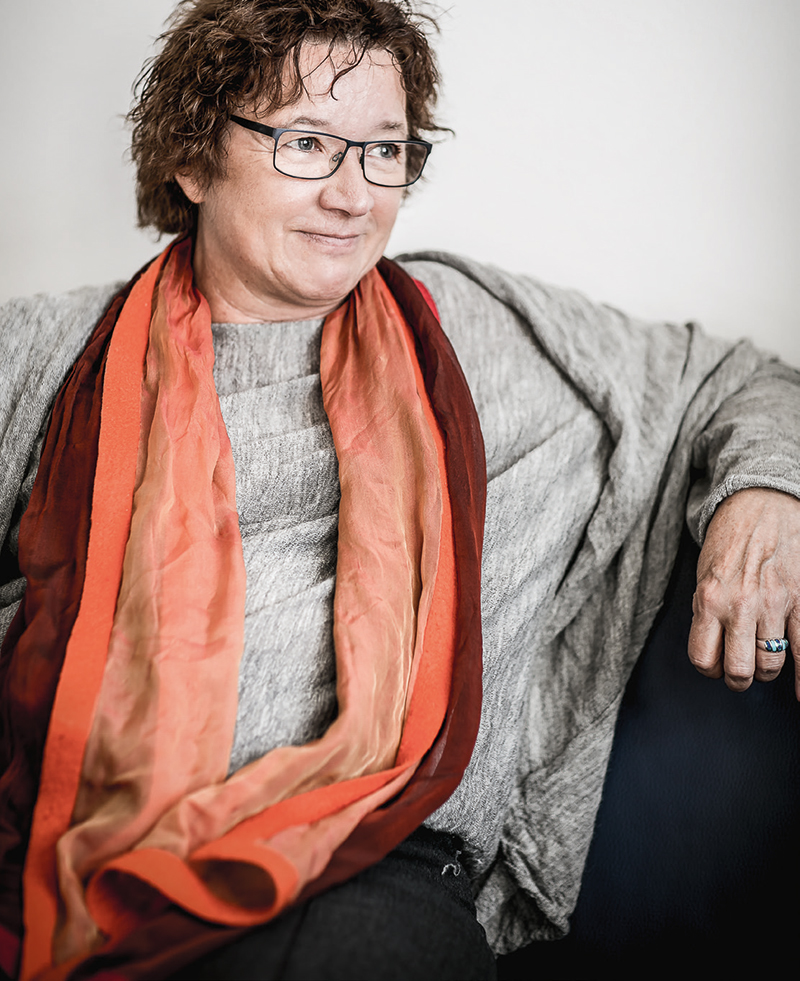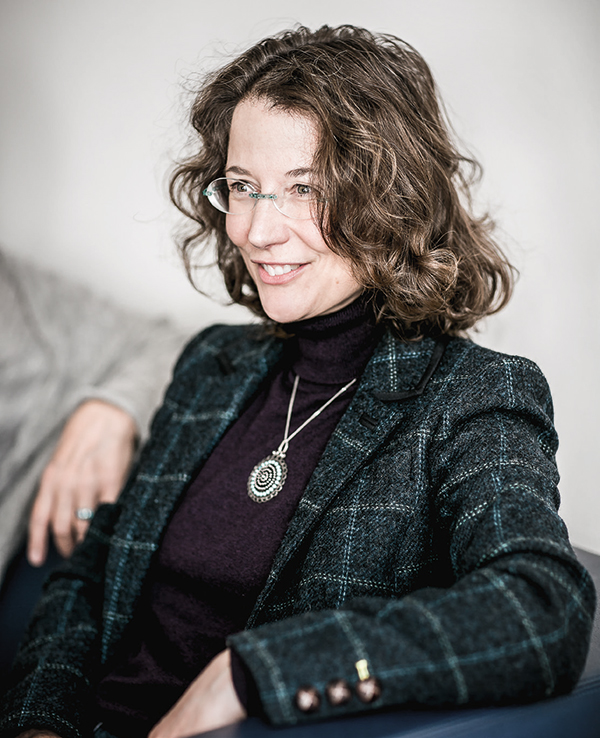Since 1 October, the mdw’s new Career Center has been working to ease students’ transition into the professional world. What all can it do? And do we really need it? A talk with Vice Rector Barbara Gisler-Haase and Career Center head Susanne Latin.
In 2015, the mdw proudly presented the results of a graduate survey: its respondents indicated that they felt very well prepared for professional life. Most of them now work as musicians or music teachers—and they’re happy with that. So how did you end up concluding that there’s a need for the university to have its own Career Center?
Barbara Gisler-Haase (BGH): That conclusion arose from surveys of current students as well as from actual practice. I’ve been teaching flute performance classes for forty years, and I’ve followed the development of a whole lot of people after graduation and seen what problems they tend to encounter.

What are those? And what should mdw graduates be able to do, apart from playing their instruments?
Susanne Latin (SL): Hofmannsthal wrote that music is a holy art, and he was right. But today, having the opportunity to practice this art depends on numerous abilities. Take the oft-cited word entrepreneurship, for instance, which is anything but popular—especially among practicing artists. It’s sometimes even viewed as sacrilegious to concern oneself with the business side of things. But it’s so important. It starts with self-management and with understanding social insurance, taxes, and basic legal concepts.
But that’s what agencies are for.
SL: These days, it’s no longer enough to be with a good agency. An agency does get you work. But in this market, you have to think very hard about who you are, where you want to go, and how you’ll get there. You have to draw a distinction between your next money job and your career as an overall life concept. All this requires a certain amount of self-reflection.
We do already have the mdw club, which offers workshops and connects people with the industry. Isn’t that enough?
SL: The mdw club, as such, is there mainly for alumnis. The Career Center, on the other hand, starts earlier. Since permanent, full-time positions are getting rarer and rarer across the entire culture business, and with lots of orchestras being merged or even disbanded, our students and young graduates face a problem. Because when winning an audition no longer opens the door to a secure future, you need a new concept for your life and/or your career.
Previous descriptions of the Career Center mentioned “easing the transition from student life to the working world” and “promoting and supporting students entering professional life”. That sounds great, but what does it actually entail? What will the Career Center do?
SL: The Career Center rests on three pillars, the first of which consists of course offerings. Together with the Centre for Further Education, we offer programmes for individual occupational groups. In February, we’d like to offer a course for young conductors, who have a hard time getting a professional foot in the door. There will also be something on artistic self-management, and in the summer, we’re planning a course for outstanding young artists who are perhaps past the point—at, say, age 25—where you normally get a chance to learn how to write CVs or present yourself in interviews. You wouldn’t believe the mistakes that young artists make when they sign their first contracts—how many of them get totally exploited.
How many ECTS points would I receive for such a course?
BGH: None—these aren’t standard electives, they’re supplementary offerings.
Was the Career Center set up based on any particular models? Did you look at programmes run by other institutions, or did you really start with a blank slate?
SL: You never start with a completely blank slate. So we did, of course, look at what’s offered elsewhere, and we’re continuing to do so.
BGH: Everyone really works with the same content and tools. Some institutions make it part of the curriculum, while others actually make you pay extra. So we adapted things according to our feel for our own institution.
The mdw has already offered some occupation-specific electives that taught self-management. But those didn’t attract much interest. Do students underestimate the importance of such things?
BGH: That may be the case—until real life teaches them otherwise.
SL: Attitudes about this are gradually changing. As soon as students have gathered some performing experience, they start thinking: How do I get concerts? How do I approach potential sponsors? And how do I present myself?
Which brings us to the Career Center’s second pillar.
SL: We’re in the process of setting up an online platform that will introduce particularly good students and/or graduates. It’s a way for us to help them approach agencies and event organisers. It’ll be possible to view the musicians’ photos and CVs as well as watch excerpts from concerts and interviews. A second platform will be geared to future music educators, with a bulletin board for use by anyone who’s looking for music lessons. The Career Center’s third pillar has to do with performance opportunities. There are lots of those already, but the ones that go beyond university concert life are what interests the Career Center—things like cooperative projects with external organisers such as the Musikverein, the Brucknerhaus, or Radio Ö1.

What role does the new mdw Chamber Orchestra play, here?
BGH: That also represents a step beyond pure teaching. There’s an enormous need for orchestras at our university, both for opera performances and conductors’ public diploma exams. We have the ability to meet this need with our own musicians, and for gigs like these, we’re offering a fee that’s a bit below standard rate but still quite respectable. Students playing in the mdw Chamber Orchestra can, should, and must feel like professional orchestral musicians, with all the usual rights and responsibilities.
The mdw also has a programme for highly gifted children and teens. So do you view yourselves as universal providers, accompanying the musicians from kindergarten to orchestra contract?
BGH: We’ve now actually merged both of these areas in our efforts to advance young musicians: the preparatory programme, which requires special supervision, and our efforts at the threshold between student and professional life. Between these lie six challenging years of university studies.
Wouldn’t it make sense to include everything we’ve been talking about here as an integral part of training? To tackle them in the core curriculum rather than in supplementary courses?
BGH: In our new curricula, these things have been included under the heading “Kulturbetriebslehre/Musikmanagement” [Cultural Business Studies / Music Management]. And it’s done in such a way that students can take advantage of the various offerings according to what they’re interested in—whether it’s how to head a music school or presenting oneself to orchestras. But in the core curriculum, we really just wanted to lay down a foundation to which you can add, if desired. Everything that takes place as part of the curriculum runs the risk of being viewed simply as an obligation, without necessarily understanding how important it is for young artists. Besides which, some of this really does go beyond what a curriculum’s capable of containing, and our curricula are generally quite full to begin with.
Is there a trend among universities toward providing students with support and guidance right up to their first day of work? And is there a point where even a postsecondary institution has to say, “We’ve done our part, now you have to go it alone”?
BGH: That point does exist—we’re just moving it a bit farther out. Until now, it was officially over with your final exams—though instructors would often do their best to network the graduates afterwards. So what we’re doing is placing such initiatives on a solid footing. After all, we’re proud of these people, too. And we want everyone to see that quality is what we’re about.

